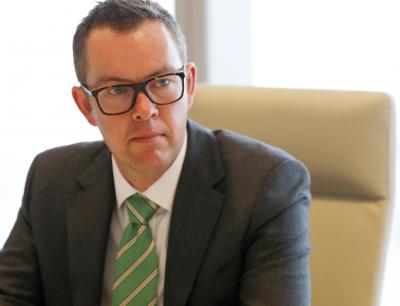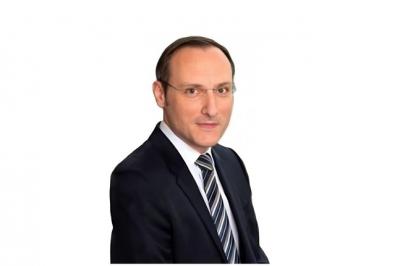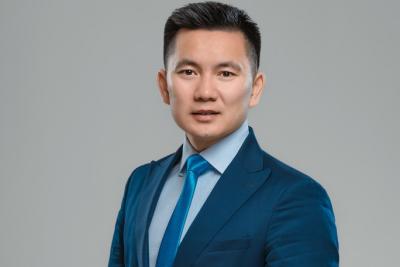Oreana’s CIO on the Value of Thematic Investing in a World of Great Uncertainty

Isaac Poole of Oreana Financial Services
Aug 1, 2022
On July 14, Hubbis hosted a virtual discussion on the current demand for thematic investments in Asia’s private wealth markets. The Digital Dialogue event saw a panel of wealth management and investment experts offer delegates their views on some of the more interesting thematic investment strategies that wealthy private clients could adopt. They considered how this can apply to the APAC wealth management markets, and to private clients across the generations. Isaac Poole, Global Chief Investment Officer & Portfolio Manager at Oreana Financial Services, based in Sydney, was one of our chosen experts, offering a great depth of experience and perspectives for delegates. We have summarised some of his insights in this short review. Isaac commented on the dramatically different world investors face this year, and he advised a rigorous and highly analytical review of current holdings, to see if they stand up to current and anticipated conditions. He observed that if the advisors, managers, and investors all see eye to eye on the trends and the timeframes, there are some interesting themes for investors to buy into for the medium to long-term.
Isaac opened his observations by commenting on the dramatically changed conditions, with inflation, rising rates, falling indices, worsening sentiment, concerns over stagflation, and global geopolitical anxieties conspiring to put huge pressure on equities and on fixed income, and challenging even broadly diversified approaches to portfolio formation.
Which way to turn?
“There is great difficulty in identifying either turning points for the market, or the right timing and opportunities to reinvest,” he said. “The challenge is therefore to be more granular about asset classes, and for investors to think about whether some of the prevailing themes or strategies that they have focused on in recent years are still valid. They need to start thinking about entry points more broadly, and start rebalancing portfolios to take the best opportunities right now.”
He said fixed income, for example, might be evolving into an opportunity, he added. “It's been a long time since government bonds have looked interesting,” he observed. “Over the last five to 10 years they have not offered a lot of downside protection, or income or yield, or a great deal of diversification, but that is changing.”
Healthcare and the real world ahead
Isaac drilled down into some of the themes he considers valid today, such as healthcare. “Thematics such as healthcare need to be seen through the prism of time and to generate sustainable alpha over the medium to longer term and sometimes a very long term,” he said. “For healthcare I would see it from the perspective of aging demographics in the West, younger demographics in the East, these are themes and megatrends that have been in place for some time and exist independent of the pandemic. Such trends will be there in 10 years’ time.”
He said these trends will also impact inflation. “It is interesting that despite this surging inflationary environment, there's been very little discussion about demographics, as there are now some cyclical issues pushing inflation higher, but as a trend that will persist for some years to come,” he reported. “Accordingly, healthcare as a thematic is interesting, especially to gain exposure to these longer-term demographic trends.”
Plenty of themes and valid approaches
Other themes of interest are in areas such as digitisation and artificial intelligence, both of which he said are critical for combating inflation through productivity enhancement.
He added that active and passive strategies, as well as public and private markets can combine effectively to curate a smart approach to thematic investing. He said that advisors and investors can seek out pooled access to the less accessible private assets to gain exposure to some interesting thematics.
“For most investors, a combination of perhaps broad ETFs, and then some more specific active funds can be a good way to go about things, particularly in a DPM mandate, but it is useful just to highlight that those private options also exist,” he explained.
The connectivity between trends and time
He expanded on the connectivity between themes and time, cautioning that private clients who expect too much alpha in too short a time are pursuing the wrong approach.
“They should be looking for cumulative alpha over a long period of time,” he advised. “At times, there can be a complete mismatch between the theme, the process and philosophy of the fund managers and the expectations of the clients, and that results in the sort of churn that is not great for the fund managers.”
In short, the key message is that advisor, fund manager and client timelines and expectations match, otherwise there will be disappointments all round.
Patience and communication are needed
Isaac closed his comments by noting that it was, accordingly, essential for advisors to have the right discussions with clients upfront, to ensure these timeframes are agreed and properly understood and to make sure that return expectations are realistic. “Without that, you're likely to be having have some very uncomfortable conversations with clients later on,” he cautioned. “These types of frank and realistic conversations are the right entry points for working on thematics with your clients.”
A Brief Note on Isaac
Isaac Poole has significant experience in the financial sector with a career spanning across central banking, risk management, asset allocation and investment consulting in major firms in Australia, the UK and Hong Kong.
Prior to joining Oreana, Isaac worked at Willis Towers Watson as the Head of Capital Markets Research in the Asia-Pacific. In this role he contributed to asset allocation decisions, macro-economic analysis and investment research across Asia and global markets. Isaac worked with institutions including major sovereign wealth funds, government agencies and pension funds. Isaac’s focus in this role was delivering asset allocation solutions to improve portfolio outcomes and returns.
Other prior roles include Chief Economist at NSW Treasury Corporation, tasked with debt financing and investment management for the NSW Government, Manager of Economic Risk at Lloyds Banking Group, the largest retail bank in Britain, and graduate economist at the Reserve Bank of Australia. Isaac holds a PhD in Economics from the University of Sydney in NSW, Australia.
Isaac’s PhD developed economic theory and quantitative methods to analyse optimal mechanisms in key financial markets in Australia including government bond auctions and the Australian housing market. Isaac has also studied at the University of Oxford in the UK and the University of Tasmania in Australia, and is the current Senior Industry Fellow at the University of Tasmania School of Business and Economics.

Global Chief Investment Officer Portfolio Manager at Oreana Financial Services
More from Isaac Poole, Oreana Financial Services
Latest Articles






